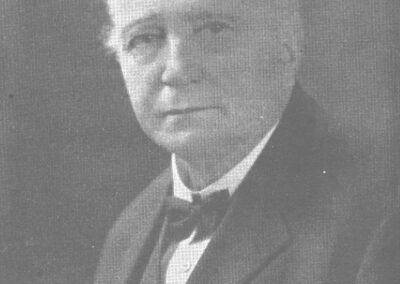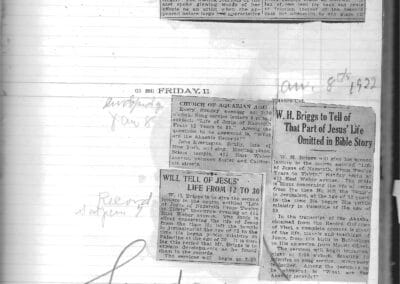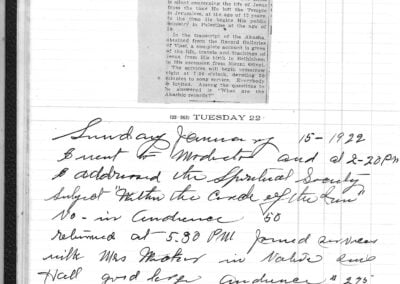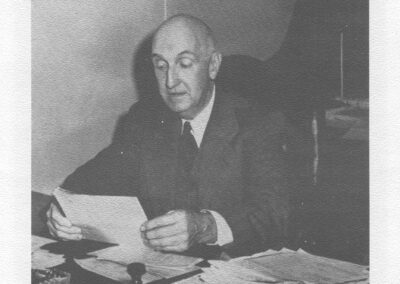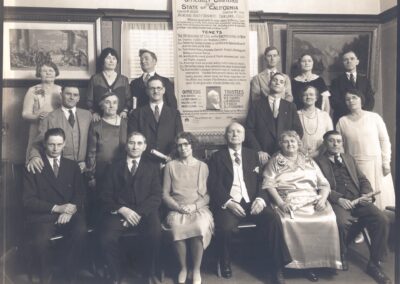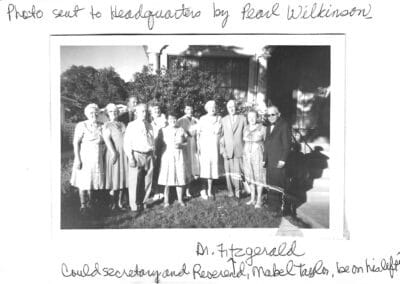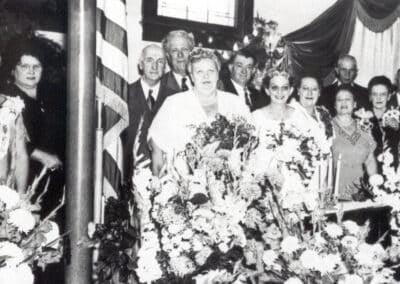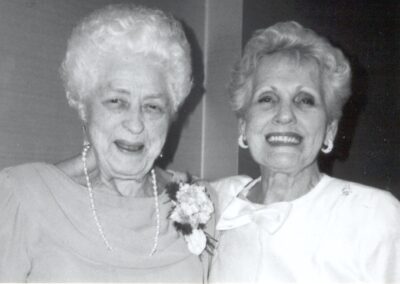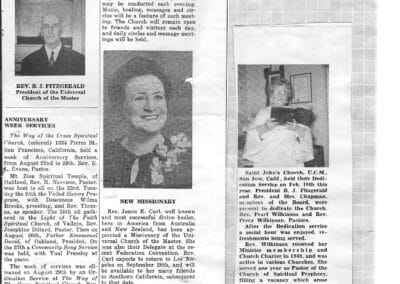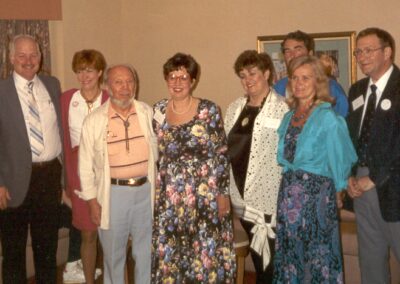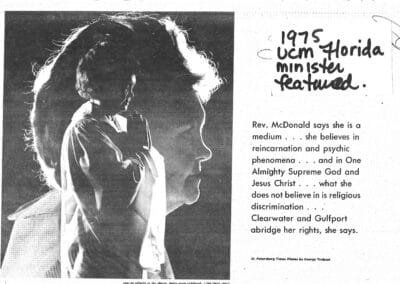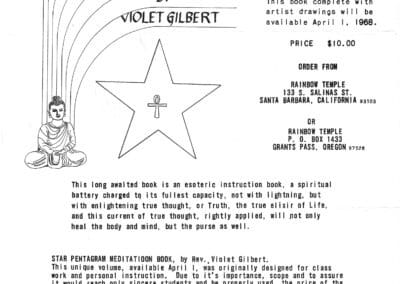
Dr. Briggs affectionately known as “Daddy Briggs” to his friends and associates was a truly dynamic speaker. He had a natural charisma that attracted crowds numbering in the hundreds, eager to hear him speak on the continuity of life and on the nature and use of universal spiritual laws.
Today, there are countless diverse metaphysical churches teaching Spiritual Truth, which had been lost and hidden for centuries. And many churches are bringing through new knowledge and understanding as revealed through spiritual vision and insight.
UCM ARCHIVE GALLERY
Click thumbnails to see larger versions.
In the early 1900’s, much – if not most – of the material presented by Dr. Briggs was considered radical and even heretical to the churches of that day.
Daddy Briggs never demanded nor required any commitment to his teachings or metaphysical insights, asking only that each person keep an open mind, try out these spiritual principles for themselves, and see if they worked as he said they would. That said, Dr. Briggs set exceptionally high standards for his ministerial students and for the ministers themselves, standards that he exemplified in his own life and being; standards which remain fundamental to ministerial practice in UCM today.
In October of 1930, the National Administrative Offices of the Universal Church of the Master were moved to Oakland, California. Ministers trained by Dr. Briggs remained in the Southern California area to continue the teachings and training that he had started there. With the Great Depression at its height, the average person was unemployed and had little hope of finding work. Hopelessness, fear and despair were characteristic. To meet the needs of these people, the Oakland Center of UCM was opened on a daily basis to provide hope, cheer, comfort and love, as well as metaphysical teaching and spiritual enlightenment. UCM ministers shopped the bakeries and doughnut shops for day-old baked goods that could be served with fresh, hot coffee to those attending services. This ministry was gradually expanded to provide needy families with food, clothing, and other necessities.
In 1931, Dr. Briggs retired from his position as President of UCM. Dr. Byron John Fitzgerald replaced him. Outwardly, Dr. Fitzgerald seemed a contrast to Daddy Briggs. Fitzgerald was a quiet, more scholarly-type of individual. But, both men possessed the same inner vision and spiritual insight. And, both men, in their teachings and writings, continued to emphasize the importance of allowing each individual to explore metaphysical truth for themselves, to determine their own paths of spiritual growth, based upon the individual’s level of evolvement and understanding, a process incompatible with fixed rules and inflexible dogmas. Daddy Briggs and Dr. Fitzgerald both emphasized the fact each individual within Self must find genuine spiritual knowledge. Thus, a key element of UCM teaching has continued to be in giving sincere seekers the means and methods by which he can find this inner source.
Our founders in a time of bias, bigotry, and racism were truly touched by Spirit. UCM has embraced all faiths, genders and races, including welcoming a full spectrum of ministers and practices from the very beginning. While other churches are still fighting about gender and race, for us it was never an issue.
The Oakland Center was forced to move several times, but it continued to remain open on a daily basis with a different minister in charge each evening of the week. This policy allowed Dr. Fitzgerald the time to visit the increasing number of UCM ministers and UCM churches which were beginning to spread throughout the United States. Dr. Fitzgerald also was freed to conduct many special meetings and rallies in the San Francisco Bay Area. Old timers have fond memories of one of the highlights of the Oakland Center’s activities, its annual Fourth of July Picnic, held at a nearby park.
As a scholar, Dr. Fitzgerald realized the importance of producing a permanent record of the metaphysical principles and spiritual understandings taught by UCM. Compiling, editing, and writing as time permitted, Dr. Fitzgerald began work on A New Text of Spiritual Philosophy and Religion in 1936, completing this task some seventeen years later.
A New Text is required reading for ministerial candidates as is the Minister’s Guide and Service Book, also written by Dr. Fitzgerald, and completed the year after his first book was published. Minister’s Guide has also gained wide acceptance and is used by ministers in many other denominations, as well as by UCM ministers.


